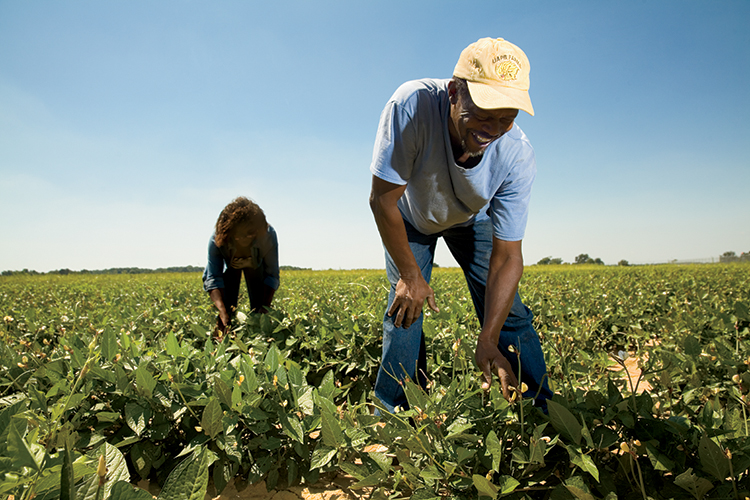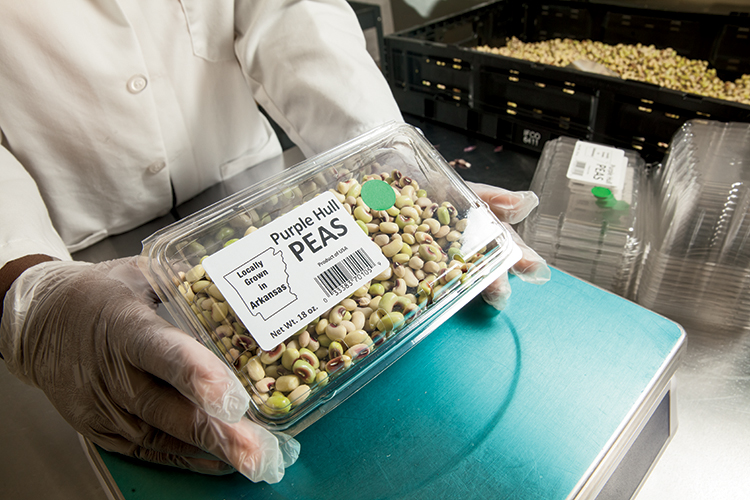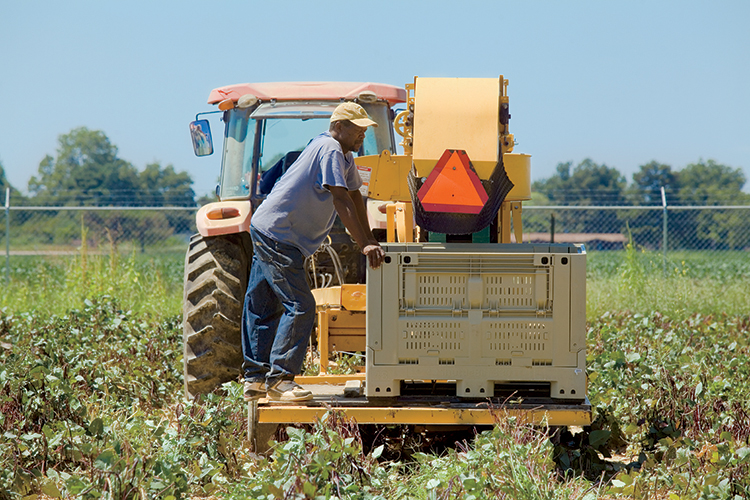Home > Arkansas > Arkansas Ag Education > Seeds of Change for Arkansas
Seeds of Change for Arkansas
It’s hard to imagine that something as small as a pea can make a big difference in the world. But in the Arkansas Delta, that’s exactly what is happening, thanks to The Pea Project.
A project of the Arkansas Delta Seeds of Change, The Pea Project is helping minority farmers in five counties in the Arkansas Delta grow, package and sell peas to Wal-mart.
Forty-two community-based entities and individuals came together to form the Arkansas Delta Seeds of Change program, which is part of the overall Seeds of Change effort started by Heifer International. The Pea Project is one part of the Seeds for Change program and is run in partnership between the East Arkansas Enterprise Community (EAEC ) and the University of Arkansas at Pine Bluff (UAPB).
“Our goal is to help minority farmers identify markets for their products and enhance their livelihood,” says Dr. Mildred Griggs, director of Arkansas Delta Seeds of Change. “We provide expertise to help growers grow sustainably and environmentally-friendly peas. These are small-scale, low-income producers who may have two acres or five acres. Growers can hand-pick or machine-pick the peas they grow with our equipment, then bring them to be shelled, packaged and shipped to Wal-mart.”
Organizers hope The Pea Project will help reduce poverty in the Arkansas Delta, one of the most impoverished regions of the United States.
“It’s still too early to assess the benefits, but The Pea Project is already creating jobs for those growing peas, picking peas and processing peas,” Griggs says. “I grew up here in the Delta, went away in the 1960s and then came back. I was surprised to see there was still a lot of poverty here. It takes a lot of human effort to create change, and it’s exciting to see people interested in improving their lives.”
The UAPB’s role in The Pea Project is to educate farmers on the production, post-harvest physiology and economics of Southern peas. The university provides educational meetings, conducts one-on-one farm visits to assist with production and the use of specialized equipment.
“One of the barriers to vegetable production is identifying markets, and this project identifies new markets,” says Dr. Henry English, director of the Small Farm Program at the UAPB.
The Pea Project was born after the UAPB, the EAEC , area farmers and the USDA met with Wal-mart officials to talk about marketing specific vegetables to them.
“The group decided to test Southern peas as a pilot project the first year, since the farmers, the EAEC and D&S Produce – a small father-and-son semi-processing business in Pine Bluff – had experience growing Southern peas,” says English.
Heifer International’s Seeds of Change project focuses on ending hunger and poverty in Arkansas and Appalachia by improving access to nutritious food and increasing income through business and community development. The goals of Seeds of Change include increasing agricultural production, thereby improving financial security and improving nutrition through increased access to healthy food.
“Another project we’re working on is Farm to Schools, where the EAEC will buy watermelons and produce from farmers and sell them to schools,” Griggs says.
A survey of school cafeterias found that while students would often throw away apples and oranges, they enjoyed eating watermelon, cantaloupe and cherry tomatoes.
“The Farm to Schools project cuts down on waste,” Griggs says, “and gives kids the healthy fruits and vegetables from local growers that they really like.”






